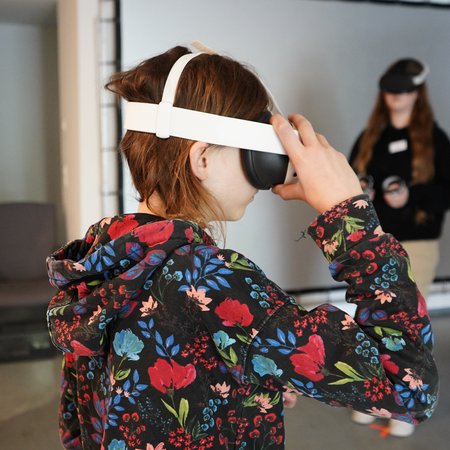“Science Thrives in Open-minded Environments”: An Open Letter from the Directors of Research Institutes in Potsdam

Science park "Albert Einstein", Potsdam-Telegrafenberg.
Credit: Luftbildaufnahmen Jokeair, Klaus Breuer & Andrea Künstle GbRThere is no place in Potsdam for hostility towards foreigners and those seeking refuge, argue the heads of educational and research institutes in Potsdam in an open letter published on 16 March 2016 in the Märkischen Allgemeinen, the Potsdamer Neuesten Nachrichten and other newspapers.
Albert Einstein (1879-1955)
Science thrives in open-minded environments – in places that foster our curiosity of the unknown and encourage a free and impartial exchange of ideas and people across nations, cultures, religions, and ethnicities. The closed society is the antithesis of science.
With science, the free spirit of the open society has found a home in Potsdam – a city which has hosted a number of world-renowned scientists throughout its history, among them Albert Einstein, who was forced to flee to the United States in 1933. In relative terms, no other city in Germany is home to more scientists than Potsdam. Many of the institutions based here employ researchers from diverse countries. With over 10 000 employees, the science sector is one of the leading sources of employment in the region. Around 25 000 students attend colleges and universities in Potsdam. Each year our city is visited by numerous researchers from around the world. And every day, researchers in Potsdam engage in joint research with colleagues based at institutes abroad to bring about a better future for people here in Germany and throughout the world.
To call into question the fundamental right to human dignity and its protection – as has occurred here in Potsdam in recent weeks in the context of the refugee crisis – is to attack the very spirit and character of this city. As the leaders of research institutes based in Potsdam, we reject all expressions of hatred, violence, and intolerance towards people on the basis of their origins, appearance, religion, or other grounds. There is no place in our country or in our city for hostility towards foreigners and those who come to us seeking refuge. These attempts to create a climate of hate run counter to our values as Europeans, as Germans, and as citizens of Potsdam – and to our interests as a leading centre for science and business.
We are extremely proud of the many employees at our institutes who, on their own initiative, dedicate considerable effort to fostering a caring and tolerant society in which violence has no place – whether they do so by helping those in need or by standing up for the liberal values that underpin our society. They are role models to us all, and we call on Potsdam to maintain its tradition as a cosmopolitan and tolerant city – not simply for the sake of science, but for the sake of all those who live here and who come as guests to our city.

Science park "Albert Einstein", Potsdam-Telegrafenberg.
Credit: Luftbildaufnahmen Jokeair, Klaus Breuer & Andrea Künstle GbRThere is no place in Potsdam for hostility towards foreigners and those seeking refuge, argue the heads of educational and research institutes in Potsdam in an open letter published on 16 March 2016 in the Märkischen Allgemeinen, the Potsdamer Neuesten Nachrichten and other newspapers.
Albert Einstein (1879-1955)
Science thrives in open-minded environments – in places that foster our curiosity of the unknown and encourage a free and impartial exchange of ideas and people across nations, cultures, religions, and ethnicities. The closed society is the antithesis of science.
With science, the free spirit of the open society has found a home in Potsdam – a city which has hosted a number of world-renowned scientists throughout its history, among them Albert Einstein, who was forced to flee to the United States in 1933. In relative terms, no other city in Germany is home to more scientists than Potsdam. Many of the institutions based here employ researchers from diverse countries. With over 10 000 employees, the science sector is one of the leading sources of employment in the region. Around 25 000 students attend colleges and universities in Potsdam. Each year our city is visited by numerous researchers from around the world. And every day, researchers in Potsdam engage in joint research with colleagues based at institutes abroad to bring about a better future for people here in Germany and throughout the world.
To call into question the fundamental right to human dignity and its protection – as has occurred here in Potsdam in recent weeks in the context of the refugee crisis – is to attack the very spirit and character of this city. As the leaders of research institutes based in Potsdam, we reject all expressions of hatred, violence, and intolerance towards people on the basis of their origins, appearance, religion, or other grounds. There is no place in our country or in our city for hostility towards foreigners and those who come to us seeking refuge. These attempts to create a climate of hate run counter to our values as Europeans, as Germans, and as citizens of Potsdam – and to our interests as a leading centre for science and business.
We are extremely proud of the many employees at our institutes who, on their own initiative, dedicate considerable effort to fostering a caring and tolerant society in which violence has no place – whether they do so by helping those in need or by standing up for the liberal values that underpin our society. They are role models to us all, and we call on Potsdam to maintain its tradition as a cosmopolitan and tolerant city – not simply for the sake of science, but for the sake of all those who live here and who come as guests to our city.
Images
Science park "Albert Einstein", Potsdam-Telegrafenberg.
Big screen size [1000 x 741, 1.6 MB]
Original size [1060 x 786, 1.8 MB]



